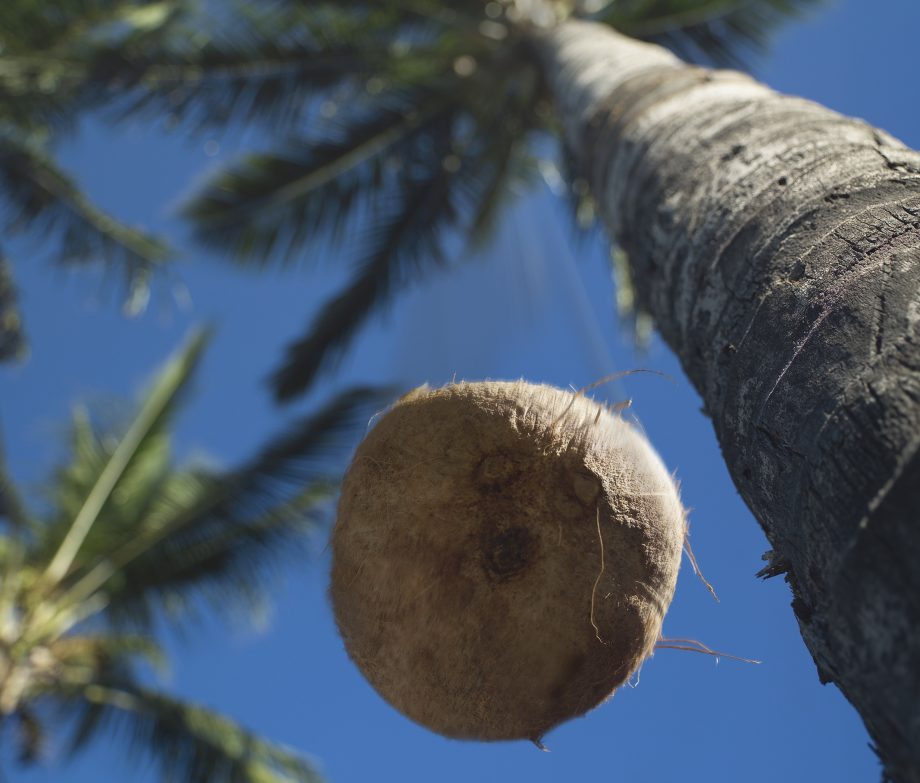A well-known legend says: the chance of a person dying after a coconut falls on his head is much higher than being killed by a shark. Let's find out how true this legend is.
If the danger of sharks is obvious, then expecting trouble from coconuts is somehow unusual, especially if you live in cold latitudes. Nevertheless, the story of the lethality of these fruits has spread widely throughout the world, and for some reason 150 victims annually are often mentioned: and in test about the causes of death, published by the St. Petersburg city newspaper "Paper", and in publications Russian division of the Discovery Channel that the fear of sharks is exaggerated. The legend has not bypassed popular culture - for example, about the correspondence “competition” between coconuts and sharks arguing characters from the series "Kitchen". We tried to figure out how this story came about and how accurately it describes reality.
Let’s reveal our cards right away: there is no reliable data on how many people in the world die every year from a coconut falling on their head. Therefore, it is quite difficult to make the comparison we are interested in. However, this does not mean that such deaths are not documented at all. Accident News came at various times from the USA, Vanuatu, Malaysia, Thailand, India, Colombia and Sri Lanka.
In 1984, researcher Peter Barss published article Injuries Due to Falling Coconuts (“Injuries Resulting from Falling Coconuts”). In his work, the scientist summed up the results of a four-year observation of one hospital in Papua New Guinea, where nine people with similar injuries were admitted during this time. They all survived, but the article mentions a death from a falling coconut that occurred before the scientist’s arrival. Later, Barss also published works on injuries received by local residents from pigs And garfish, because of skirts on fire And falling from trees. In 2001, for his work on coconuts, he received Ig Nobel Prize.
With sharks, everything is much clearer - Florida Museum for decades keeps records all known attacks. According to researchers, over the past 20 years, five to six people died from shark attacks every year.
It's funny that in 2002 it was an employee of this museum, George Burgess, in his column for The New York Times wrote: “Falling coconuts kill 150 people worldwide each year, 15 times the number of shark-related fatalities.” Of course, since one of the main experts on this issue provides such data, it is difficult not to believe them, and the number 150 quickly became entrenched in legend. However, some time later Burgess admitted, that he did not calculate it in the course of some research, but simply quoted Brent Escott, CEO of a travel company Club Direct. Where he got this information from is unknown.
It turns out that we cannot yet reliably confirm or refute the verified statement. To reach a verdict, statistics are needed for both causes of death - at present we only have one of the two parts of the proportion. Perhaps if such data is collected in the future, we will look at some events differently. For example, how in 2002 the authorities of the Australian state of Queensland, taking care of tourists, uprooted coconut trees from the beaches, and eight years later the coconuts were preventively knocked down from palm trees in the courtyard of the Gandhi Museum in Mumbai, where Barack Obama was supposed to come for a tour.
This is not accurate
Read on topic:
- https://en.wikipedia.org/wiki/Death_by_coconut
- https://www.snopes.com/fact-check/coconuts-kill-more-sharks/
If you find a spelling or grammatical error, please let us know by highlighting the error text and clicking Ctrl+Enter.







